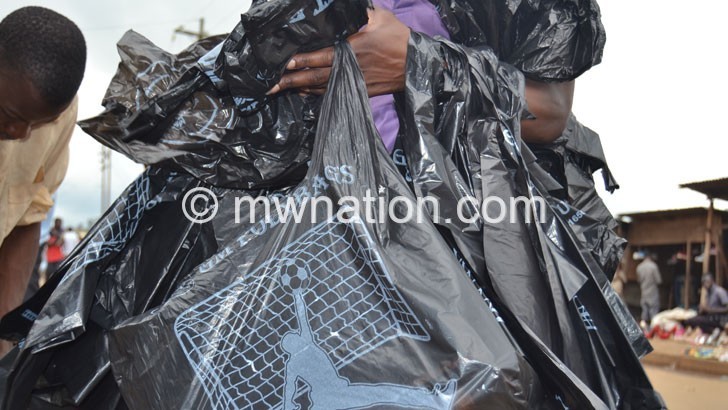Govt starts thin plastics disposal
Government says it will start disposing of thin plastics with immediate effect and will not give manufacturers a grace period to finish selling stocks piled in their warehouses.
Environmental Affairs director Oliver Kumbambe said in an interview yesterday that the disposal of the thin plastics will be done following the Malawi Supreme Court of Appeal ruling in which it upheld the ban last week.

Asked why government will not allow manufacturers to clear stocks, Kumbambe argued that the case has been in court for three years and that manufacturers were still producing thin plastics of less than 60 microns despite being aware of the ban.
He said: “You may recall that government first announced the ban on June 30 2015 following the passing of the Environmental Management [Plastics] Regulations. Now that the ban has been sustained, we will begin disposing of the products immediately.”
In 2018, The Lilongwe Wild Life Trust found out in its study that thin plastics make up of 8.5 percent of waste generated in the country, which is creating fear to government, considering that the country is producing more waste than other Sub-Saran countries.
Kumbambe warned that those who fail to comply with the Environmental Management (Plastics) Regulations will face imprisonment for a minimum period of three months or a minimum fine of K10 million.
The Environment Management Regulations provides for exemptions to the ban considering lack of appropriate alternatives and health implications that could arise if some products are not well packaged.
However, according to Kumbemba, the ban will not apply to plastics used for wrapping bread, fresh fish products and fresh poultry products. Other plastics which will not be confiscated include those used for wrapping fruits or nuts, confectionary products and other food staffs. A day before the Court reconvened to make its ruling, United Nations Development Programme (UNDP) portfolio manager Andrew Spezowka and Malawi Parliamentary Conservation Caucus (MPCC) chairperson Werani Chilenga said in a joint press statement that the ban will help tackle rising levels of plastic pollution.





